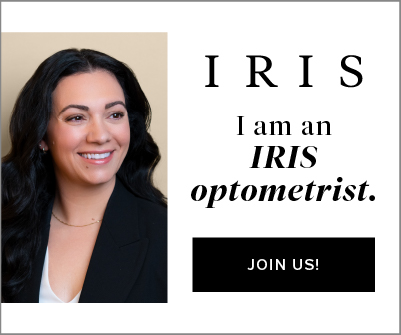
You’ve spotted a position at an up-and-coming practice that excites you. Before you go to the interview, there are key questions you may want to ask. Here are the top ones to pose during your interview with the practice owner.
Applying for a job in a practice is very much like dating. If, at the beginning of the first date, you suggest that two kids, a house in the country with a white picket fence, and a live-in suite for mom is what you are looking for … well, you just might scare off anyone who agrees to a date with you. When looking to be employed in a practice, you need to ease into finding out the answers you need to know. Conversations need to be logical, respectful and more about the owner-doctor and practice than they are about you.
The core question the owner-doctor is looking to answer is: how will you fit into the practice? If you start out with how much are you going to pay me, tell me about my benefits, how many days off do I get, will you pay for health insurance, dental insurance … all of this is about you. You are telling the owner you are more interested in you than you are in the practice. That’s a negative for an owner who is looking for someone who has the same passion about patient care and the practice as they do.
Here’s a better approach. Start the interview with the research you’ve done on the practice. Explain what you researched and how you’ve researched. This leads into the first question – Does my research accurately reflect your practice? This gives the owner the opportunity to talk about their practice. During this discussion one of the things you want to know is: how many full-time equivalent doctors are working in the practice clinic? This will be important later when you ask about practice gross revenue.
As you are talking about the practice be sure to ask: What are the most important needs you have right now – coverage on evenings or weekends, building the practice, bringing in a specialty? Where would you need me to fill in? You are beginning to explore the practice needs and how you will fit into the practice in a way that is helpful to the owner.
You are probably not the first employee-optometrist the owner has hired, so the owner knows that not all employee doctors are the same. There are productive doctors and there are non-productive doctors. Your task is to show the owner that you are a productive doctor interested in learning how to be even more productive.
The questions to ask are: What and how much communication do you need from me in performance reporting? I want to track my performance in areas such as gross revenue, $/patient and capture rate to make sure I am delivering high-quality care on every patient visit. Are there any other areas that you’d like me to track? How often would you like me to report these to you?
The conversation needs to turn to staffing, so you know what support you will have, so ask these questions: Tell me about your staff – will there be scribes, pre-testers? Tell me about the average patient flow through the practice. How often will I be scheduled with patients throughout the day? Do you want the patient hand-off in the exam room or in the optical?
If you are interested in partnership, then this needs to be brought up in the interview. Are you looking for a partner in the practice? If so, what are you looking for in a future partner? What time frame are you considering?
At some point during the interview you need to ask about the gross revenue of the practice. The question is: What was the gross revenue of the practice over the last three years? You are looking for the trend of the practice. Is this a dying practice, a flat practice or a growing practice? The trend of the gross revenue can give you insight into the answer. It also gives you the answer on the maximum wage package the practice can give you.
Take .2 times the gross revenue collected. That’s the maximum money the practice has to buy all the optometrists who work in the practice including the owner-doctor. If you know the number of full-time-equivalent doctors in the practice, then you can calculate how much is available to buy your services. You also need to know that, in contrast to the maximum, the average for the country is .15 times the gross revenue to buy all the optometrists who work in the practice. How much you are offered tells you how much the owner values you.
If the owner wants you to work in the practice, they will make an offer to you. The offer will contain all the information that you want to know, such as how much are you going to pay me, tell me about my benefits, how many days off do I get, will you pay for health insurance and dental insurance. Don’t lead with questions about this information. Let it come at the appropriate time in the discussion.
Your goal is to walk out of the interview with great knowledge about the practice, which will help you answer the most important question you have for yourself, which is: Do I really want to work in this practice? You will also have communicated to the owner that you are not the type of employee-doctor who is just looking to do the least possible to get a paycheck.
Be thoughtful and insightful in your questions, and find the practice which is the best fit for you.

MARK WRIGHT, OD, FCOVD
Dr. Wright is the founding partner of a nine-partner, three-location full-scope optometric practice. As CEO of Pathways to Success, an internet-based practice management firm, he works with practices of all sizes. He is faculty coordinator for Ohio State’s leading practice management program.

CAROLE BURNS, OD, FCOVD
Dr. Burns is the senior partner of a nine-doctor full-scope optometric practice that she built with her husband, Dr. Wright. She is also the COO of a state-wide nursing care optometry practice. Dr. Burns lectures nationally on practice management and staffing issues. Dr. Burns authored the Specialty Practice section of the textbook, Business Aspects of Optometry.











